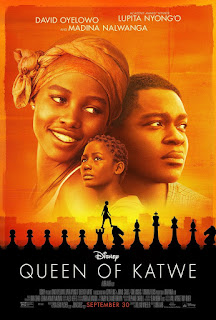 |
| Happy birthday, Nia Long. |
 |
| Like Saved By the Bell's Lisa Turtle, Fresh Prince of Bel Air's Lisa Wilkes was a huge 90's fashionista. |
Long starred as police officer Sasha Munroe on NBC's Third Watch and guest starred on the late soap Guiding Light as well as Judging Amy, Boston Legal, Big Shots, House of Lies, Uncle Buck, Empire, Dear White People, and NCIS: Los Angeles.
Love Jones will definitely go down as one of her best roles-- the talented, reserved photographer Nina Mosley who deliciously falls for the Casanova poet Darius Lovehall (played by the amazing Larenz Tate) to an amazing soundtrack. In The Best Man series, Jordan Lovehall has a complicated history with Harper Stewart (played by Taye Diggs) who is seriously committed to Robin (Sanaa Lathan) which leads into a very tumultuous triangle-- well rendered by the three actors involved, especially Long, not a loser but victorious by other means. Long can be seen in Soul Food, Big Mamma's House, Alfie, Keanu, Are We Done Yet and its sequel.
 |
| Nia Long with Lemon director Janicza Brazo and co-star Shiri Appleby. |
In addition to films and the small screen, Long is also a music video vixen, having starred in videos by Snoop Dogg, Kanye West pre fabricated church era, and other rappers. In Ashanti's Baby (which Long co-directed), Long is serving all kinds of sensational, flawless looks, even singing along to the lyrics to her "lover's" ear.
Long has won three NAACP Image Awards (Best Actress in a Drama Film for The Best Man and Best Actress in a Drama Series for Third Watch, twice), a Black Reel Award (Best Theatrical Actress in The Best Man), and three honors from the Acapulco Black Film Festival (Star of Tomorrow for 2000, Best Actress and Best Ensemble Cast for The Best Man Holiday).
Up next Long will be in The Banker with Samuel L. Jackson and Anthony Mackie, Life in a Year with Cuba Gooding Jr. and Jaden Smith, and Fatal Affair with KJ Smith and Omar Epps.
In a Hollywood that tragically suffers from colorism, Nia Long has always been that woman to look up to for the multifaceted image of a brown skin woman, choosing dignified, humanist roles. She is still searching for the roles that are not race and gender specific, that allow her to be so much more than what is stereotypically required of her. Until she finds the answer, she has amassed a sweet body of work worth watching on repeat.
Nia Long Quotes:
"When I requested or wanted more, I was considered difficult, outspoken, entitled, and all of the things that should not be used to describe a woman who has earned her space, her place, and delivers. And that just doesn’t apply to me, that’s for everyone."
"I’m 45. I’m black. And I’m a woman. So those are three really hard things to deal with ... I work really hard to get sometimes crumbs. I feel blessed and lucky to have the career that I have. But there are times that I’ve been beat up in this business. It hasn’t just been roses and fairy tales. It’s been a tough road."
"I’m not trying to be an ingénue anymore. I wouldn’t want those opportunities because then that would just mean that I haven’t grown."
"No matter what level you’re on in this industry, you’re expected to be excellent. Being excellent — when the material isn’t — can be challenging."
“I got to strip down and just be raw and vulnerable and afraid and misunderstood. All of us have a family member that resembles a Miss Peggy. She is you know she’s a hero, really, at the end of the day. ... So for me it was a no-brainer. I love the story.” (on playing Ms. Peggy in Roxanne Roxanne).


























































